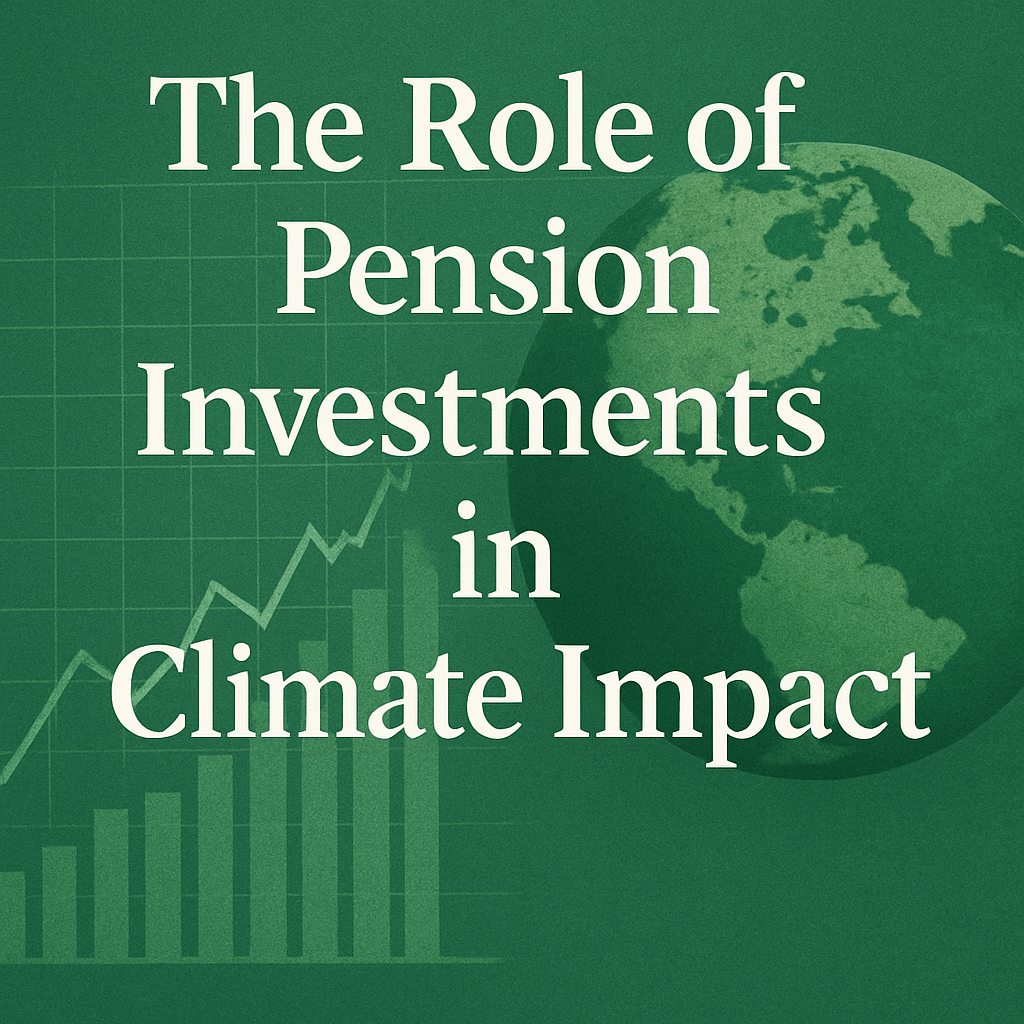The Role of Pension Investments in Climate Impact

For many individuals, investing in a workplace pension is a standard practice, with the aim of accumulating funds to secure a comfortable retirement. However, as environmental concerns continue to mount, a critical question arises: what is the ecological footprint of those pension investments?
The Role of Pension Investments in Climate Change
Pension funds often allocate substantial amounts of capital into various sectors, including those notorious for their environmental impact. While investing in traditional assets ostensibly seems beneficial; the repercussions can extend well beyond financial returns. Key sectors, especially fossil fuels and industries linked to significant carbon emissions, are often entrenched in these investment portfolios.
Key Sectors Contributing to Climate Change
- Deforestation-linked Industries: Industries such as palm oil extraction, soy cultivation, and large-scale cattle ranching are significant contributors to deforestation. Current estimates suggest that deforestation accounts for approximately 12-20% of global greenhouse gas emissions. As of 2025, it is projected that 20% of the Amazon Rainforest could be lost, highlighting the urgent need for environmentally conscious investment choices.
- Shipping Companies: The shipping industry, which includes maritime cargo and air freight, is responsible for about 2.4% of global emissions. The large vessels used for shipping goods often rely on heavy fuel oils, which emit significant amounts of CO2. Some companies are beginning to adopt greener technologies, such as LNG-powered vessels and fuel-efficient logistics systems. Investors should research the sustainability initiatives of these companies to make informed decisions.
- Aviation Companies: The aviation sector is another considerable player, contributing approximately 2.5% of global carbon emissions. The lack of sustainable alternatives in air travel continues to pose challenges, with reliance on jet fuel sustaining the environmental toll. While airlines are exploring avenues like biofuels and hybrid engines, these innovations are still in nascent stages, and travelers remain dependent on fossil fuels.
How to Evaluate Your Pension Investments
To make informed choices about the impact of your pension on the environment, it is essential to scrutinize your pension provider’s investment policies. This may require requesting detailed information from your pension scheme trustees on asset allocations and specific investments. Companies now often provide ESG (Environmental, Social, and Governance) reporting, which allows investors to analyze how their capital contributes to sustainability initiatives.
Strategies for Sustainable Investing
- Engage with Providers: Inquire about sustainable investment options and whether your pension provider considers environmental impacts in asset selection.
- Portfolio Diversification: Look for funds that focus on clean technology, renewable energy, and sustainable agriculture, reducing the reliance on harmful industries.
- Stay Informed: Follow developments in ESG investing. Various reports and indices can help assess how well companies mitigate their environmental impact.
Insights from Environmental Expert Nils Hoogervorst
Nils Hoogervorst, Environmental Expert at GreenMatch, emphasizes the importance of environmental consciousness in retirement planning. He states,
“We all want to make sure that we have a good pension for when we retire. However, it is essential that we are environmentally conscious when doing so. Make sure to do your research when choosing your pension. With the increased investment in green technology, there are plenty of more ethical choices for you to make.”
Conclusion
As the intersection of finance and environmental sustainability becomes increasingly prominent, it is vital for pension holders to recognize the ecological implications of their investments. By understanding where their money is being allocated, individuals can make choices that align with both their retirement goals and environmental ethics. The growing shift towards sustainable investing is not merely a trend but represents a broader rethinking of how financial resources can be better utilized for the planet’s future.